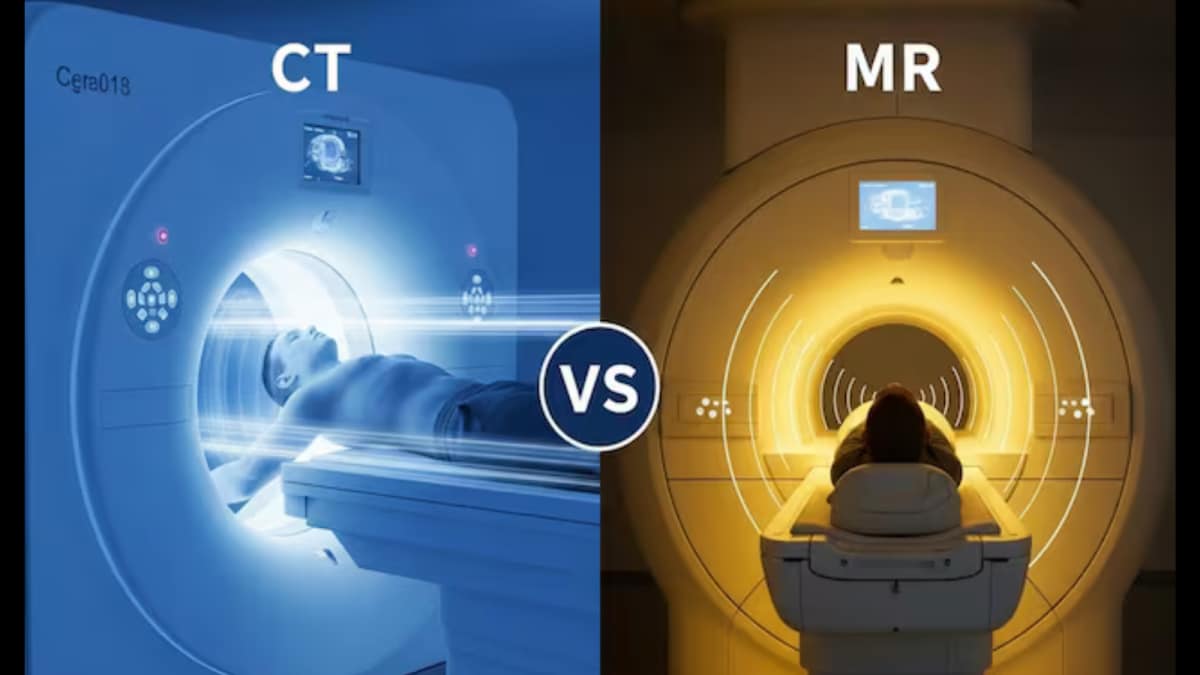Last Updated:
People often confuse MRI and CT scans, but experts note they are very different. Both are widely used to detect internal injuries and diseases, each serving a distinct purpose

While MRI provides clearer images of soft tissue, CT scans are more accurate for bones and hard tissue. (AI Generated)
When health problems occur on the skin surface, such as an open wound, they are usually easy to spot. However, internal injuries or diseases often require advanced medical tests.
Among the most common diagnostic tools are MRI (Magnetic Resonance Imaging) and CT (Computed Tomography) scans. Although many people confuse the two, medical experts say they work in very different ways and are used for different purposes.
Dr Sonia Rawat, Director of Preventive Health and Wellness at Sir Ganga Ram Hospital, New Delhi, told News18 that MRI uses a magnetic field and radio waves to capture detailed images of internal organs. It is particularly effective in showing soft tissues such as the brain, spinal cord, ligaments, muscles, and tumours. “Since MRI does not involve radiation, it is considered safe and can, in certain cases, be advised for pregnant women and children,” she explained.
On the other hand, CT scans are based on X-ray technology. They combine multiple X-ray images taken from different angles to create a 3D image of the body. Dr Rawat said CT scans are especially effective for diagnosing issues related to bones, lungs, blood vessels, and internal injuries. However, they do involve exposure to a small amount of radiation, which makes MRI preferable in more sensitive cases.
In terms of clarity, MRI provides better images of soft tissue, whereas CT scans are more accurate for bones and hard tissue. MRI scans usually take longer—around 30 minutes to an hour—while CT scans can be completed within minutes. “In some cases, both scans are required to get a full picture of the problem,” Dr Rawat added.
Doctors typically recommend MRI for neurological conditions or deep injuries involving muscles, ligaments, and joints. CT scans are often advised in cases of head injury, fractures, lung diseases, internal bleeding, or suspected cancer.
Experts caution that repeated CT scans may be harmful due to radiation exposure, although having one or two carries no major risk. Meanwhile, MRI is radiation-free but not suitable for patients with pacemakers, metal implants, or other metallic objects in the body.
Doctors advise that before undergoing either test, patients should always inform their physician about any pre-existing medical conditions to ensure safety and accuracy.








